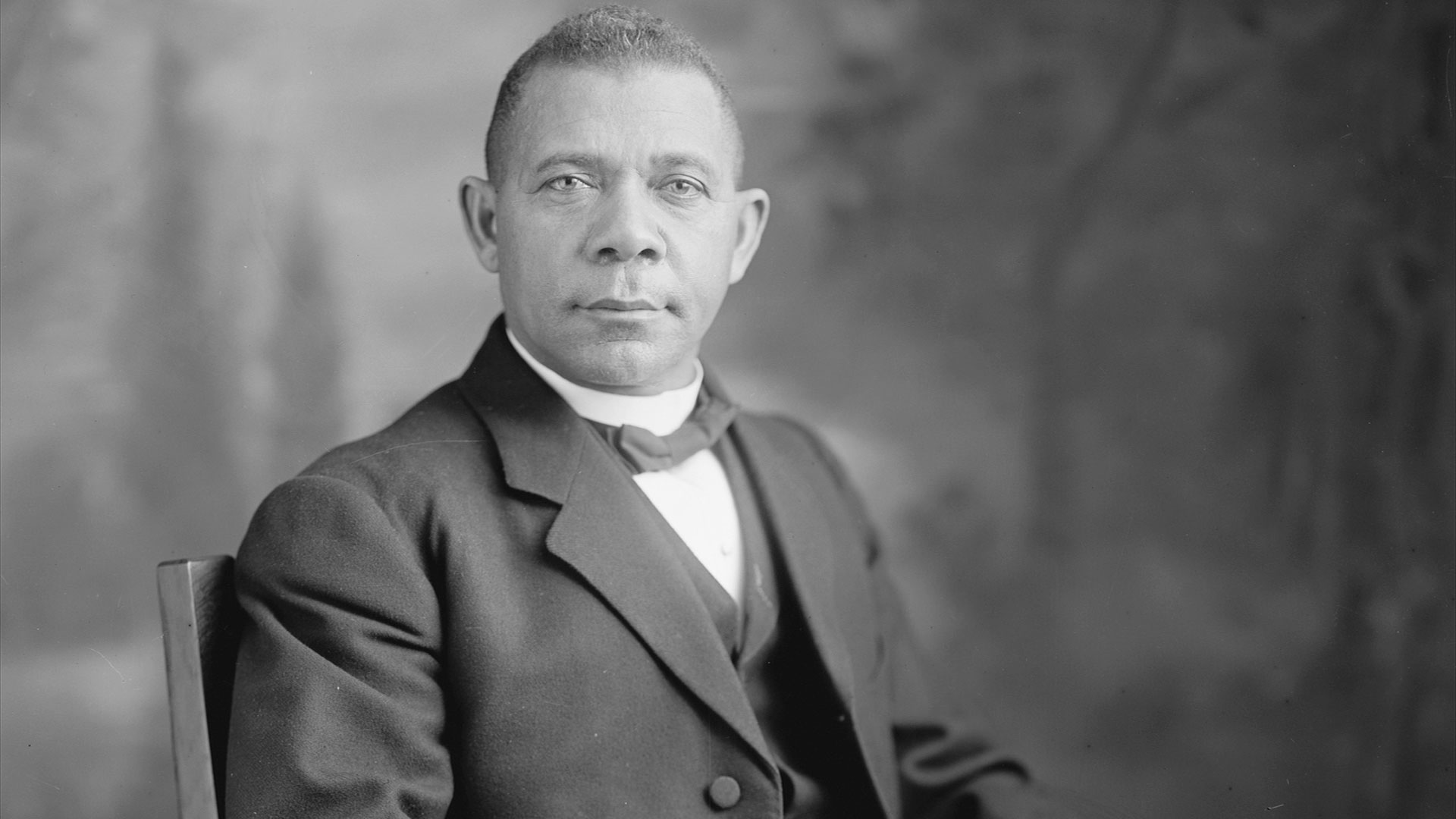
“I have learned that success is to be measured not so much by the position that one has reached in life as by the obstacles which he has had to overcome while trying to succeed.”
—Booker T. Washington
Point #1
Born into slavery in Virginia in the mid-to-late 1850s, Booker T. Washington put himself through school and became a teacher after the Civil War. In Franklin County, Virginia, as in most states prior to the Civil War, the child of a slave became a slave. Booker’s mother, Jane, worked as a cook for plantation owner James Burroughs. His father was an unknown white man, most likely from a nearby plantation. Booker and his mother lived in a one-room log cabin with a large fireplace, which also served as the plantation’s kitchen.
Point #2
In 1872, Booker T. Washington left home and walked 500 miles to Hampton Normal Agricultural Institute in Virginia. Along the way he took odd jobs to support himself. He convinced administrators to let him attend the school and took a job as a janitor to help pay his tuition. The school’s founder and headmaster, General Samuel C. Armstrong, soon discovered the hardworking boy and offered him a scholarship, sponsored by a white man. Armstrong had been a commander of a Union African-American regiment during the Civil War and was a strong supporter of providing newly freed slaves with a practical education. Armstrong became Washington’s mentor, strengthening his values of hard work and strong moral character. Booker T. Washington graduated from Hampton in 1875 with high marks.

“Those who have accomplished the greatest results are those who never grow excited or lose self control, but are always calm, self possessed, patient and polite.”
—Booker T. Washington
Point #3
In 1881, the Alabama legislature approved $2,000 for a “colored” school, the Tuskegee Normal and Industrial Institute (now known as Tuskegee University). General Armstrong was asked to recommend a white man to run the school, but instead recommended Booker T. Washington. Classes were first held in an old church, while Washington traveled all over the countryside promoting the school and raising money. He reassured whites that nothing in the Tuskegee program would threaten white supremacy or pose any economic competition to whites.
Point #4
During Washington’s rise as a national spokesperson for African Americans, they were systematically excluded from the vote and political participation through black codes and Jim Crow laws as rigid patterns of segregation and discrimination became institutionalized throughout the South and much of the country.
Point #5
In 1881, he founded the Tuskegee Normal and Industrial Institute in Alabama (now known as Tuskegee University), which grew immensely and focused on training African Americans in agricultural pursuits. Booker T. Washington remained the head of Tuskegee Institute until his death on November 14, 1915, at the age of 59, of congestive heart failure.
Works Cited
Booker T. Washington Biography – Biography
